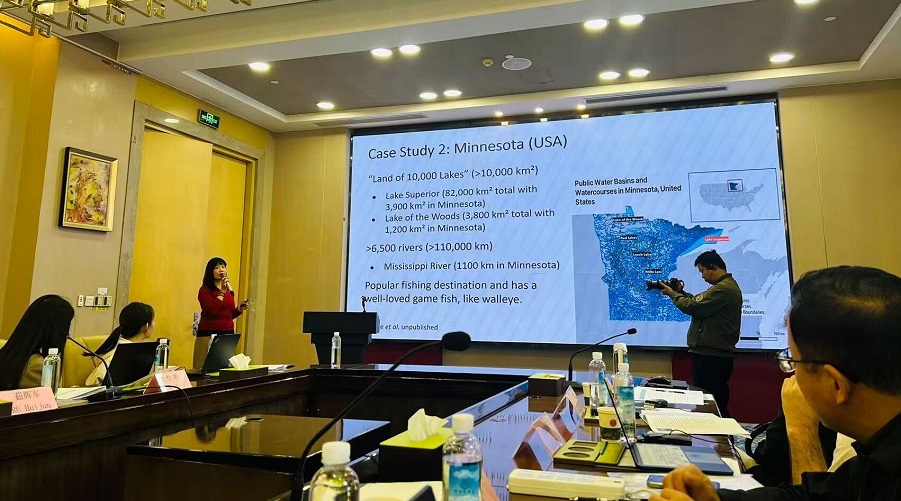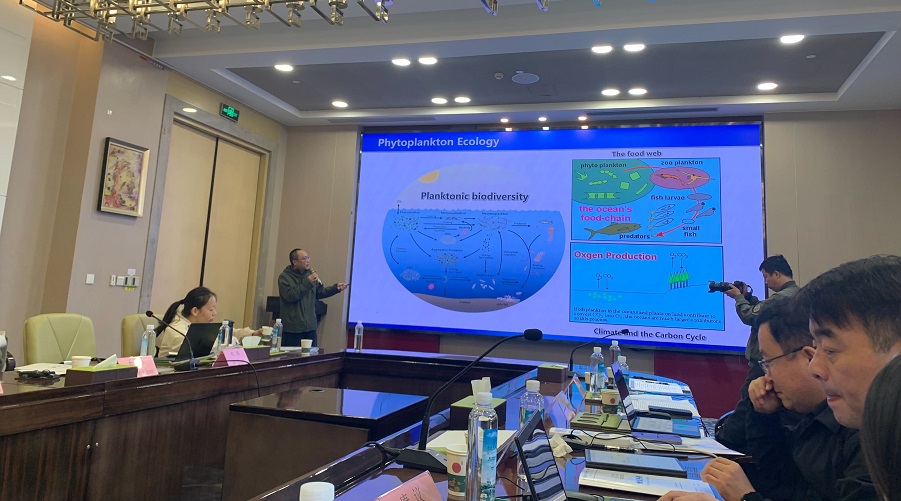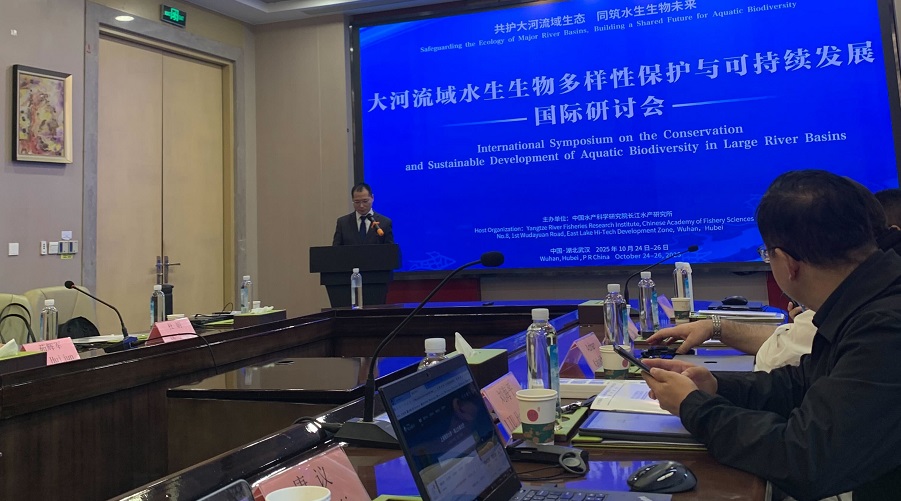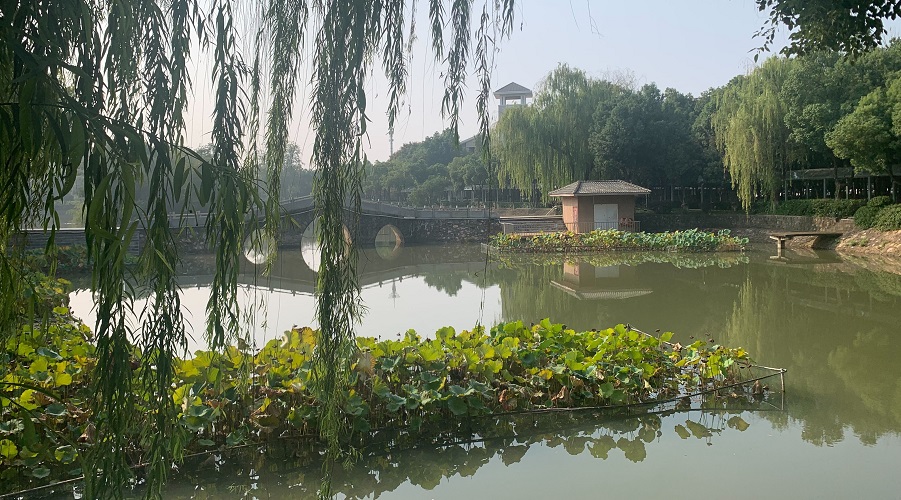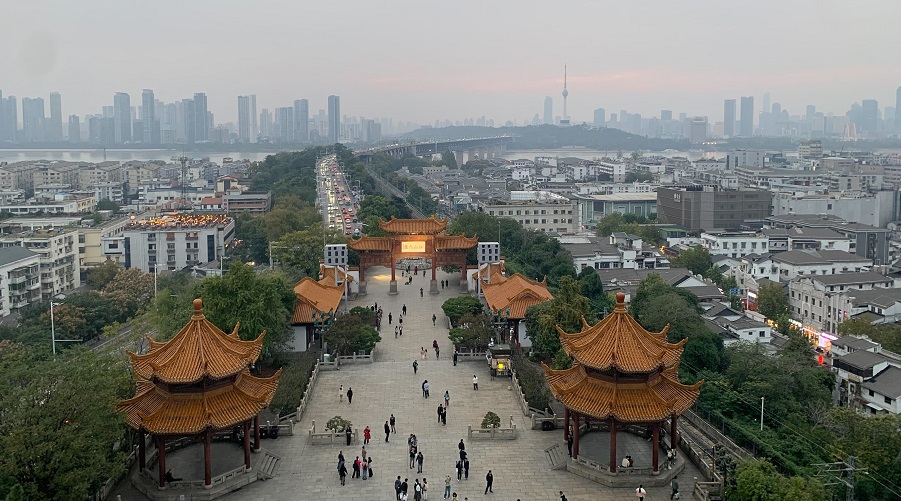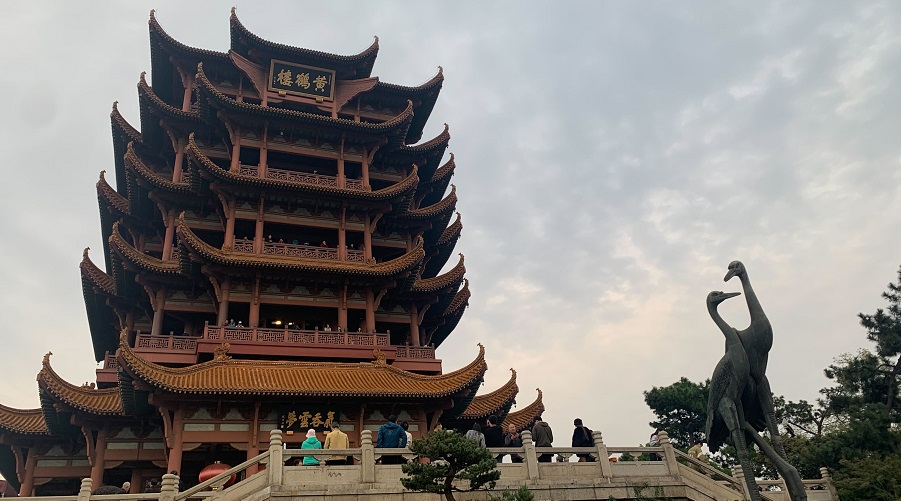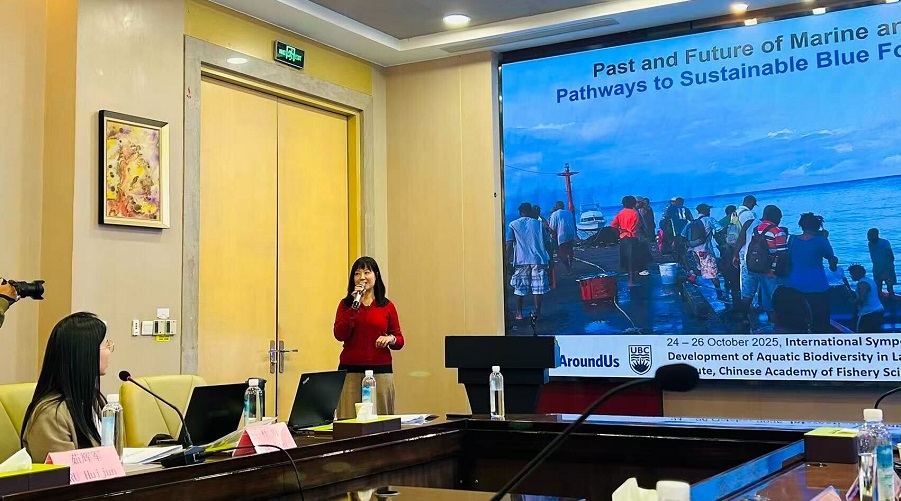
The Sea Around Us research associate, Dr. Vicky Lam, presenting at the International Symposium on Aquatic Biodiversity Conservation and Sustainable Development in Major River Basins
(October 24–26, 2025).
By Dr. Vicky Lam.
When the Yangtze River Fisheries Research Institute invited me to Wuhan to deliver a keynote at the International Symposium on Aquatic Biodiversity Conservation and Sustainable Development in Major River Basins (Oct 24–26, 2025), my first reaction was equal parts excitement and mild panic. I am trained primarily as a marine fisheries economist, so this symposium, which focused on river basins, represented a new domain for me. It was my first time presenting freshwater reconstruction work to an audience whose expertise is deeply rooted in inland systems.
My talk titled “Past and future of marine and freshwater fisheries: pathways to sustainable blue food in a changing world” was scheduled immediately after a session on the ecological effects of the Yangtze’s ten-year fishing ban. I focused on explaining why reconstruction work matters, with an emphasis on organizing and enhancing existing data so that it becomes more usable for scientific analysis, management actions and forward-looking decisions in food systems. Presenting freshwater reconstruction to an audience of freshwater specialists was both humbling and exciting, as I was bringing a marine-oriented perspective to a community whose expertise is deeply rooted in river basin science.
The range of presentations in this symposium was impressive, covering topics from the evolution of fish diversity on the Qinghai–Tibet Plateau and biodiversity responses to hydrology-driven flow changes, to fishery resources in Lao PDR and conservation practices in Zambia. The symposium theme, “Safeguarding the ecology of major river basins, building a shared future for aquatic biodiversity,” was not just a slogan; it was visible in every presentation, corridor discussion, and dinner conversation.
Also, Wuhan was a fitting host for this event, as it is a major city located in the heart of the Yangtze River Basin. Being in the basin while listening to talks about its ecology and management created a strong sense of connection between place, science, and policy. This rare alignment made the discussions feel especially grounded and relevant.
I left with two take-homes: (1) freshwater is not a footnote to marine but it is food and livelihood for millions, and (2) we, in the marine world, have far more in common with river-basin scientists than we think. River basins and oceans are part of the same connected system, even though they operate under different conditions.
My trip began with uncertainty but ended with conviction, because blue food sustainability does not stop at the coastline and in many cases it begins upstream.
- Yangtze River in Wuhan, China. Image by Vicky Lam.
- Wuhan, China. Image by Vicky Lam.
- Wuhan, China. Image by Vicky Lam.


